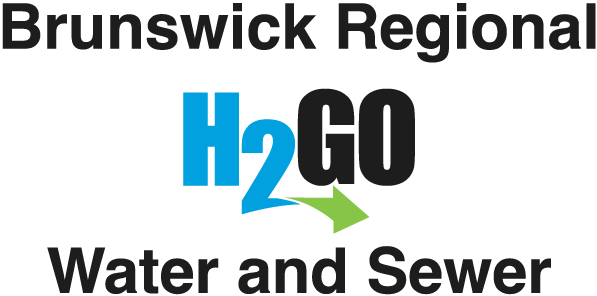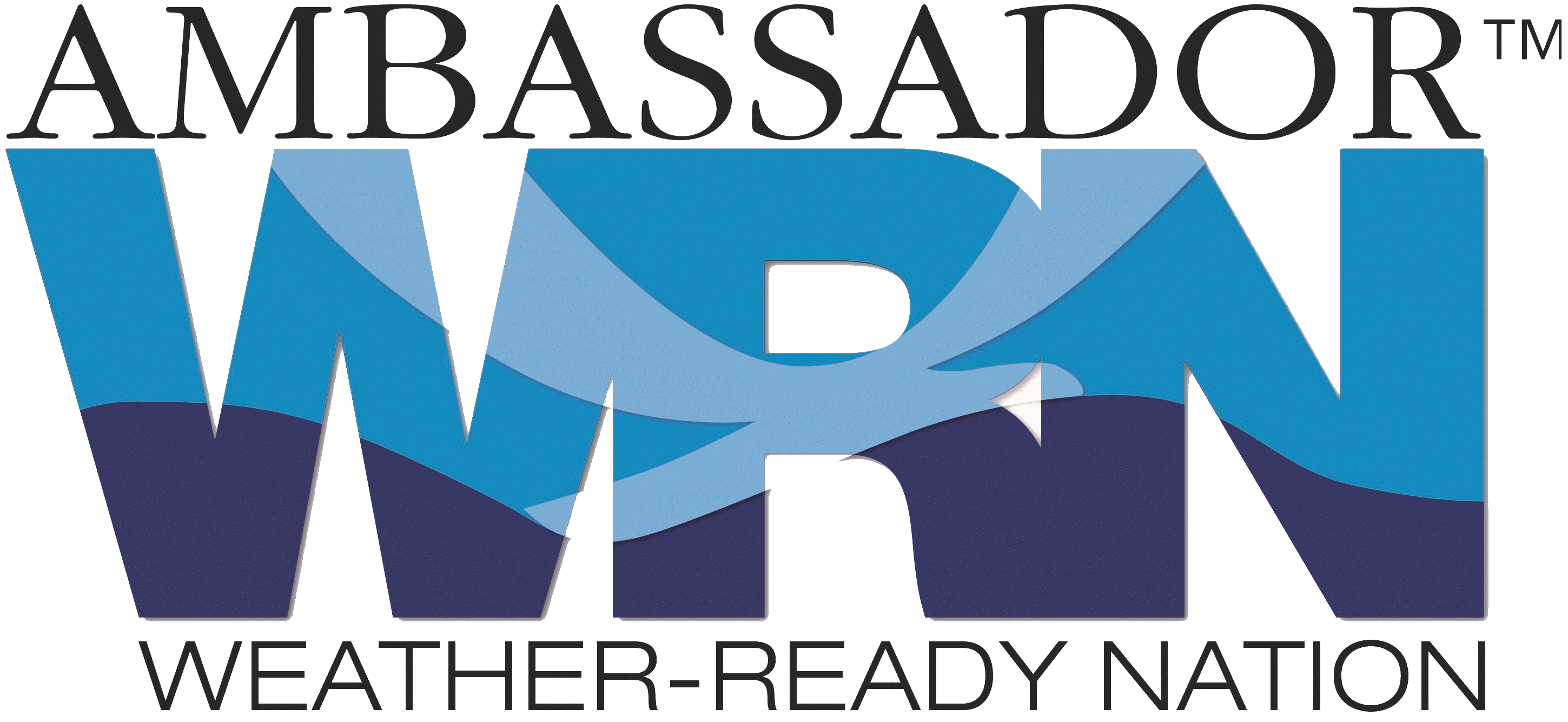Emergency Preparation
It is important for our community to be prepared for any emergency, including inclement weather.
What to do before inclement weather?
In the wake of threatening inclement weather:
-
Store a 3 - 7 day supply of a gallon of drinking water per person, per day.
- Additional water may be necessary for those with special needs such as infants, children, seniors, illness, pregnant women or pets.
- If water pressure is low or service has been interrupted, flush toilets as little as possible and discontinue outside water use.
- H2GO customers can report water main breaks and leaks by calling 910-371-9949 from 9 AM - 5 PM, or 910-367-1537 after hours or during inclement weather.
What to do during inclement weather?
If your community declares a mandatory evacuation, consider leaving. Your home can be rebuilt, your life cannot.
If your community does not declare a mandatory evacuation or you do not leave:
- Close all interior doors.
- Don't open any windows.
- If necessary, cover yourself with a mattress.
- Closely monitor radio & TV.
- Stay off phone.
-
Do not light candles or kerosene lanterns.
- It could cause a fire in cases of wind or debris entering the home.
- If the wind dies down, you may only be in the eye of the storm, do not go outside, wait for the all-clear.
What to do after inclement weather?
After inclement weather has passed:
- Open all doors and windows so gases and other fumes can escape.
- Do not try to use wet appliances, this may cause an electrical fire or further damages.
- Watch for snakes & insects.
-
Watch or listen to news for all clear to drink water.
- After an all clear flush pipes for 3 minutes or until water runs clear. Carefully follow any boil water instructions.
- Make sure children/pets do not consume food or water that may be contaminated.
- Check electric, gas and water connections before turning them on.
-
Unnecessary cell phone usage during a crisis can lead to loaded circuits, making it very difficult to communicate with emergency crews.
- This can make it almost impossible to get the water and electric restored.
- Please use your cell phone for an emergency only during or after inclement weather.
- If you have had damage to your home and property then spray paint your telephone number, address & insurance company on a piece of wood or on the side of the house. Do Not Write Your Policy Number.
-
Start preparing a list of damages. Take photographs and videos, keep receipts on repairs, supplies, food, hotel etc.
- Insurance may reimburse you for most of the expenses.
-
Check your food to make sure it is still ok to eat.
- When in doubt throw food out.
-
You should check for water and sewage line damage. If you suspect damage:
- Water lines - contact H2GO and avoid using water from the tap.
- Sewer lines - contact H2GO and/or a plumber, and avoid using the toilets.
If the water treatment and distribution system loses pressure, is damaged, or interrupted, H2GO may issue a precautionary boil water advisory. This means there is the possibility of contamination, and you should boil all water used for human consumption until testing confirms the water system has returned to normal operation.
Quick Tips
Build a Kit/”To-Go Bag”
You may want to prepare a portable kit and keep it in your car in case you are told to evacuate.
Recommended items for your emergency supply kits include:
-
Water – at least 1 gallon of water per person per day for at least 3 days, for drinking and sanitation.
- Additional water may be necessary for those with special needs such as infants, children, seniors, illness, pregnant women or pets.
-
Food – at least a 3 day supply of non-perishable food.
- Additional food may be necessary for those with special needs such as infants, children, seniors, illness, pregnant women or pets.
- Battery powered or hand crank radio and a NOAA Weather Radio with tone alert and extra batteries for both.
- Flashlight and extra batteries.
- First aid kit.
- Whistle to signal for help.
- Dust mask and plastic sheeting.
- Moist towelettes, garbage bags and plastic ties for personal sanitation.
- Wrench or pliers to turn off utilities.
- Can opener for food.
- Local maps.
- Cell phone with chargers, inverter or solar charger.
Additional Items to consider:
- Prescription medications and glasses.
- Infant formula and diapers.
- Cash or traveler’s checks and change.
- Important family documents such as insurance policies, identification and bank account records in a waterproof, portable container.
- Sleeping bag or blanket for each person.
- Complete change of clothing including a long-sleeved shirt, long pants and sturdy shoes.
- Fire extinguisher.
- Matches.
- Feminine supplies and personal hygiene items.
- Paper cups, plates and plastic utensils, paper towels.
- Paper and pencil.
- Books, games, puzzles or other activities for children.
Make a Plan
Family Disaster Plan
-
Discuss the type of hazards that could impact you and your family.
- Know your home’s vulnerability to storm surge, flooding, hail and wind.
-
Locate a safe room or the safest areas in your home for each inclement weather hazard.
- In certain circumstances the safest areas may not be your home but within your community.
- Determine escape routes from your home and places to meet if you and your family get separated.
-
Have an out-of-state friend as a family contact, so you and your family members have a single point of contact.
- Be sure every member of your family knows the phone number and has a cell phone, coins or a prepaid phone card to call the emergency contact.
- Make a plan now for what do with pets if you need to evacuate.
- Post emergency telephone numbers by your phones and make sure your children know how and when to dial 911 and other emergency phone numbers you deem necessary.
-
Use a NOAA weather radio.
- Remember to replace its battery every 6 months, as you do with smoke detectors.
- Tools – keep a set with you during the inclement weather for emergency purposes.
- Vehicle fuel tanks filled.
-
Pet care items:
- Proper identification/immunization records/medications.
- Ample supply of food and water.
- A carrier or cage.
- Muzzle and leash.
Plan to Protect Property
Inclement weather can cause heavy rains, strong winds or hail that can cause extensive damage in coastal and inland areas. You should:
- Cover all of your home’s windows with pre-cut plywood or hurricane shutters to protect your windows from high winds.
- Plan to bring in all outdoor furniture, decorations, garbage cans and anything else that is not tied down.
- Keep all trees and shrubs well trimmed so they are more wind resistant.
- Secure your home by closing shutters, and securing outdoor objects or bringing them inside.
- Install a generator for emergencies.
- Reinforce your garage doors; if wind enters a garage, it can cause dangerous and expensive structural damage.
- Find out how to keep food safe during and after an emergency by visiting www.foodsafety.gov.
Be Informed
If a hurricane is likely in your area:
- Listen to the radio or TV for information.
- Turn off propane tanks. Avoid using the phone, except for emergencies.
- Moor your boat if time permits.
- Ensure a supply of water for sanitary purposes such as cleaning and flushing toilets.
Familiarize yourself with the terms that are used to identify a hurricane:
-
A hurricane watch means a hurricane is possible in your area.
- Be prepared to evacuate.
- Monitor local radio and television news outlets or listen to NOAA Weather Radio for the latest developments.
-
A hurricane warning is when a hurricane is expected in your area.
- If local authorities advise you to evacuate, leave immediately.
H2GO will have emergency staff on call during inclement weather to maintain the viability of our infrastructure and attempt to ensure our community has water, so long as their safety is not in jeopardy. Our goal is to maintain water availability throughout the storm.







